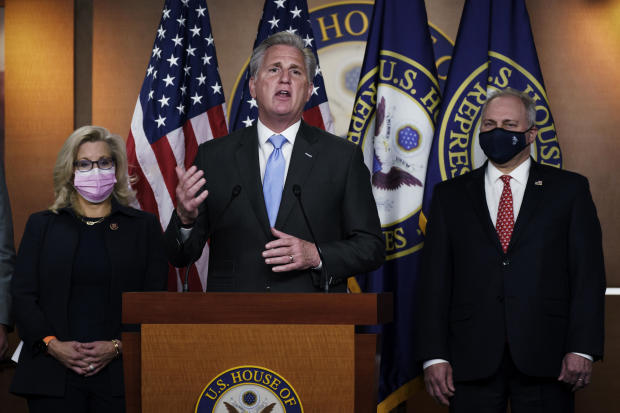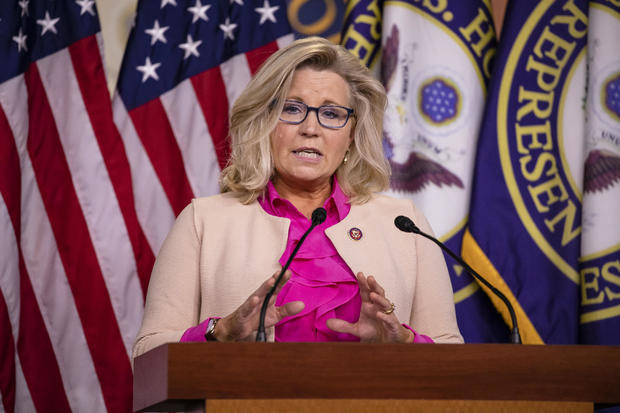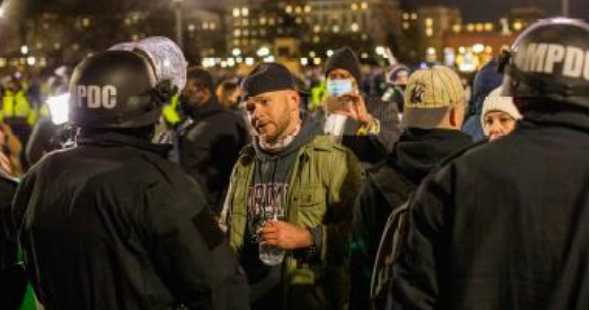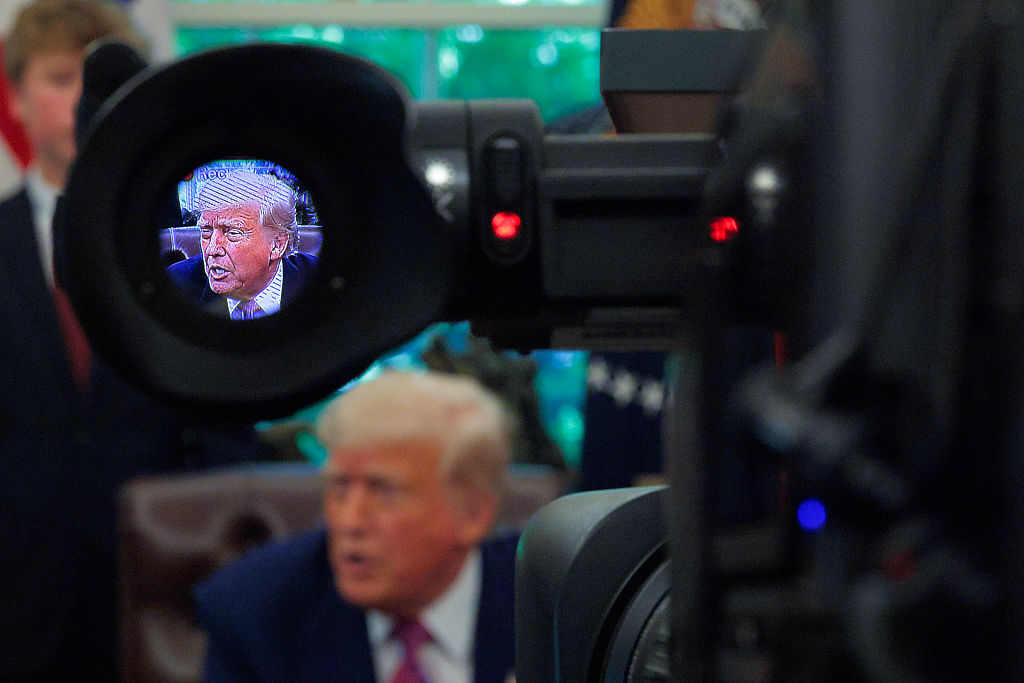House Republicans divided as some members attempt to oust Liz Cheney
House Republicans are facing internal debate over whether to remove Representative Liz Cheney from her leadership post after she voted to impeach former President Trump for inciting the January 6 riot at the Capitol. The debate has grown so bitter that some Republicans are concerned it will prevent the conference from offering a unified front against new policies from President Biden.
Republican Representatives Matt Rosendale of Montana and Andy Biggs of Arizona are among the members rounding up support from their colleagues to vote for a resolution removing the Wyoming Republican as chairwoman of the GOP conference. Sources familiar with the effort claim that more than 115 of the 211 Republicans would vote to remove her, though they have declined to share the list.
One Republican staffer expressed skepticism about those numbers, telling CBS News, "I want to see the proof. Show me the list."
Both House Minority Leader Kevin McCarthy and GOP Whip Steve Scalise, who were re-elected to their positions along with Cheney in November, have publicly backed their colleague. But in an interview with Greta Van Susteren set to air Sunday, McCarthy said Cheney did not share her position with him ahead of time and he has "concerns" that Cheney needs to answer before the conference.
"She can have a difference of opinion, but the one thing if we're going to lead within the conference, we should work together on that as a whole conference because we're representative of that conference," McCarthy said.
Cheney has remained defiant throughout the process, telling reporters the day of the impeachment vote, "I'm not going anywhere." Asked about the removal threat in an interview on Fox News on Thursday, she said there would be discussions about the process, but added, "I anticipate and am confident we will be united as a Conference going forward. We recognize how important it is to make sure that we're standing up and fighting against the policies of the Biden administration."
The highest-ranking woman in the conference, Cheney has been seen as a potential future leader in the House — especially when she passed up the chance to run for an open Senate seat in Wyoming last year. Now, she has drawn three primary challengers for her House seat, including Wyoming State Senator Anthony Bouchard, who said her impeachment vote "shows just how out-of-touch she is with Wyoming."
Cheney was the most high profile and highest-ranking of the 10 House Republicans who voted to impeach the former president. After she made the announcement, Rosendale called for her to step down, saying she "failed to consult with the Conference, failed to abide by the spirit of the rules of the Republican Conference, and ignored the preferences of Republican voters."
The chief irritant for Republicans backing the removal effort was Cheney's decision to announce her position the day before the vote, a source familiar with efforts to remove Cheney from her leadership position told CBS News. Throughout the debate the next day, House Democrats quoted her words on the floor.
"We had an impeachment vote that week and the night before the impeachment vote the conference chair issued the statement which was used as a cudgel by Democrats all day...there was a level of extreme frustration there," the source said.
More than a dozen Republicans, including some more senior members of the conference, have publicly backed her decision. Michael McCaul, the top Republican on the House Foreign Affairs Committee, said removing her "sends a bad message" after McCarthy told House Republicans they should vote their consciences on impeachment.
"Right now we should be focused on stopping President Biden from enacting some of his more liberal agenda items, including rejoining the Paris Climate Agreement and stopping construction on the Keystone Pipeline, instead of bickering with one another," he added.
Even Texas Representative Chip Roy – who is in the House Freedom Caucus with some of the members working to remove Cheney – stood by her. "Liz should be commended, not condemned, for standing up in defense of the Constitution and standing true to her beliefs," he said.
Cheney's removal as conference chairwoman would require a multi-step process. First, her detractors would need to gather the signatures of at least 43 members — 20% of the caucus — to call for a special meeting of the Republican conference. There, they could present a resolution to remove her from her job. If two-thirds of House Republicans agree, they could move directly to a vote on the resolution.
Otherwise, McCarthy could send the resolution to one of the House GOP's internal committees — which would include some members of the leadership — to make a ruling. If they report a favorable recommendation on the resolution, it goes to the conference for a secret ballot. If they report an unfavorable recommendation, the resolution would fizzle and die.
While the support of leadership is likely to help Cheney keep her job, there are concerns that allowing the effort to remove her to go this far has emboldened the far right of the caucus and is preventing the GOP from presenting a unified front against Biden.
"This is a bad message to send to women, it's a bad message to send to our freshmen," said one Republican staffer who was granted anonymity to speak candidly. The staffer said that any success in ousting Cheney from leadership would signal to members that they could face primary challenges backed by their fellow members if they don't hew to conservative orthodoxy.
"You give them an inch they're going to take a mile. If he gives them this, what happens next?" the staffer said.
Arden Farhi contributed to this report.







